
Fundamentals of Physical Geography UPSC Notes & Free Download

1. Geography as a discipline
The term Geography is derived from two roots in the Greek language: ‘Geo’ (earth) and Graphos (description).
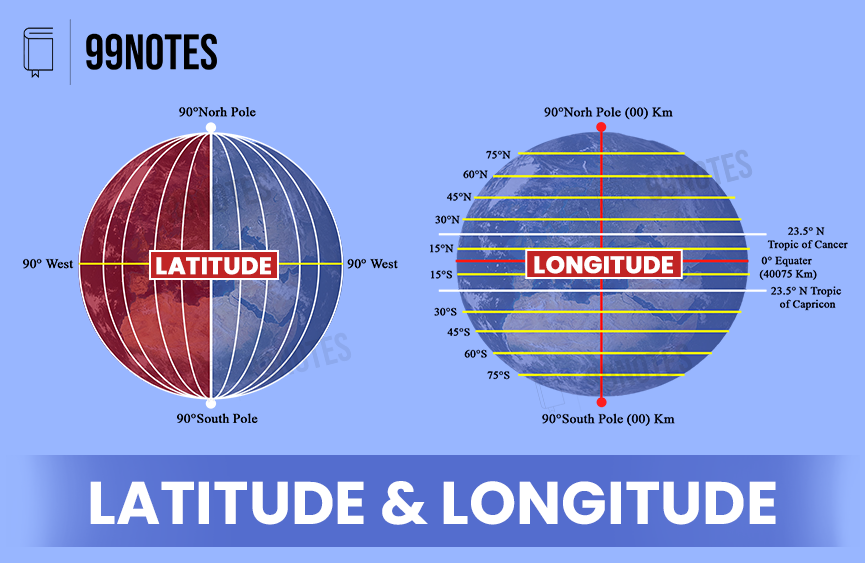
2. Longitude and Latitude
Latitude and longitude are geographical coordinates on the Earth that determine the location of any place on the Earth. .
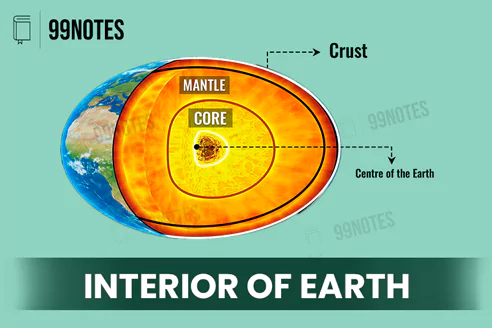
3. Interior of Earth
Geologists and seismologists have been concerned about what constitutes the earth. Earth is not a homogeneous solid ball; it consists of different layers with different characteristics.
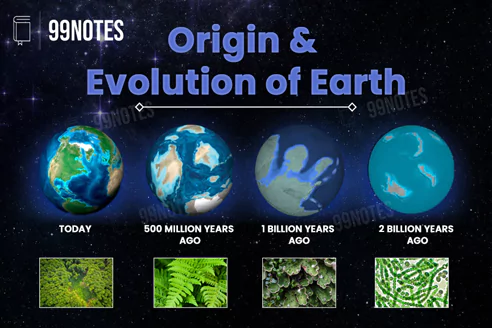
4. Origin and Evolution of Earth
In order to understand earth, which is the prime focus of Geography as a discipline, we must first understand the origin of Earth.
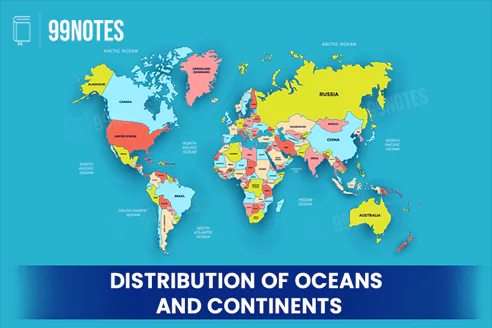
5. Distribution of Oceans & Continents
Continents cover 29% of the surface of the earth and the remainder is under oceanic waters.The position of Continents and Oceans bodies has not been constant but it has been changing in the past.

6. Minerals and Rocks
About 98% of the total crust of the earth is composed of eight elements oxygen, silicon, aluminium, iron, calcium, sodium, potassium and magnesium.
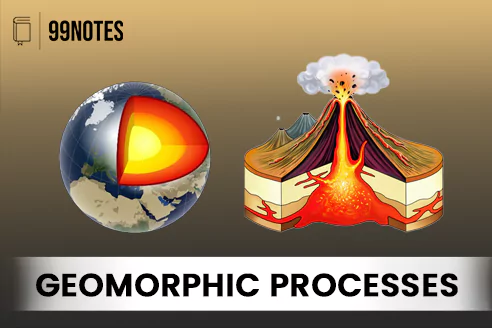
7. Geomorphic Processes
The term geomorphic process refers to the Endogenic and Exogenic forces causing physical stresses and chemical actions on earth materials and bringing about changes in the configuration of the surface.
Physical Geography of World
It is important to have a basic understanding of fundamental physical geography for the UPSC CSE, as it is a broad subject that covers a wide range of topics that are relevant to the civil service exam.
Physical geography is the study of the Earth’s physical features and processes, including the landforms, oceans, atmosphere, and climate. These topics are closely related to many aspects of human society and the environment, and a strong foundation in physical geography can help you to better understand and analyze the issues that you will encounter in the civil service exam.
Some specific topics in physical geography that may be relevant to the UPSC CSE include:
- Landforms and geology: Understanding the structure and composition of the Earth’s surface, including mountains, plateaus, valleys, and coastlines, can help you to understand the natural resources and hazards that are present in different regions.
- Oceans and seas: The oceans and seas play a crucial role in the Earth’s climate and weather patterns, and a basic understanding of their features and processes can help you to understand how they affect different parts of the world.
- Atmosphere and climate: The Earth’s atmosphere and climate are complex systems that are influenced by a variety of factors, including solar radiation, atmospheric circulation, and the Earth’s orbit. A basic understanding of these systems can help you to understand how climate and weather patterns are affected by human activities and natural forces.
- Environmental issues: Physical geography is closely related to environmental issues, including climate change, air and water pollution, and the loss of biodiversity. A strong foundation in physical geography can help you to better understand these issues and how they are affected by human activities.
Overall, studying fundamental physical geography can provide you with a broad understanding of the Earth’s physical features and processes and how they relate to human society and the environment. This knowledge can be useful in helping you to analyze and understand the issues that you will encounter in the UPSC CSE.
Physical geography is the study of the natural features and processes of the Earth’s surface. It encompasses a wide range of subdisciplines, including geomorphology, hydrology, climatology, biogeography, and pedology.
In this context, the term “fundamental” refers to the basic or foundational knowledge that is necessary for a thorough understanding of physical geography. This knowledge includes the Earth’s physical features, processes, and systems, as well as the ways in which they interact and influence one another.
One of the fundamental concepts in physical geography is the Earth’s lithosphere, which includes the crust and upper mantle. The lithosphere is composed of several tectonic plates that are constantly moving and interacting with one another.
This movement is responsible for the creation of many of the Earth’s physical features, such as mountain ranges, earthquakes, and volcanoes.
Another important aspect of physical geography is the Earth’s atmosphere, which is the layer of gases that surrounds the planet.
The atmosphere plays a vital role in regulating the Earth’s temperature and weather patterns, as well as protecting the planet from the harshness of space.
The Earth’s atmosphere is divided into several layers, including the troposphere, stratosphere, and mesosphere.
The Earth’s hydrosphere, which includes all of the planet’s water, is another important aspect of physical geography.
Water is essential for life on Earth and plays a vital role in shaping the planet’s surface. The Earth’s water cycle, which involves the movement of water from the oceans, through the atmosphere, and back to the land, is a key process in the Earth’s climate and weather patterns.
The Earth’s biosphere, which includes all living things on the planet, is also an important aspect of physical geography. The biosphere plays a vital role in shaping the Earth’s surface, as well as influencing the planet’s climate and weather patterns. The interactions between the Earth’s physical systems and living organisms are complex and dynamic, and have a significant impact on the planet’s overall functioning.
In addition to these fundamental concepts, physical geography also includes the study of human-environment interactions. This includes the ways in which human activities, such as agriculture, urbanization, and resource extraction, impact the Earth’s physical systems and living organisms. Understanding these interactions is critical for understanding the impacts of human activities on the planet, and for developing sustainable practices that minimize negative impacts.
In conclusion, fundamental physical geography is the study of the Earth’s physical features, processes, and systems, as well as the ways in which they interact and influence one another. It is a broad and complex field that encompasses a range of subdisciplines and is essential for understanding the natural world and the ways in which humans interact with it.



